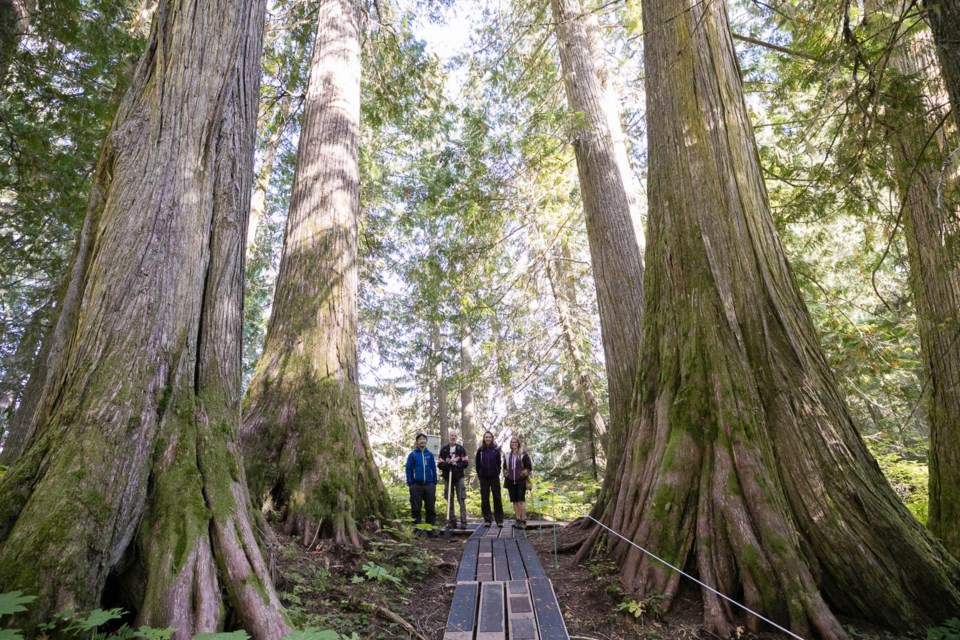Our modern relationship with nature has become overcomplicated. At its simplest, we all need fresh air to breath, clean water to drink, nutritious food to eat, and shelter to rest. Like any relationship, our relationship with nature should be about balance — we readily use the bounty that nature provides and in return we should govern our behavior to protect it. The balance of peoples' relationships with nature worldwide is often reflected in the health of their societies. Indeed, community health and land health are intertwined. "Healthy country, healthy people" is a key philosophy of many Australian Indigenous peoples. It signifies connectiveness to nature, which supports and nurtures humans.
We are living in a time, however, when most of us live busy lives, balancing work and family, and aspiring to have more. It is within this whirlwind that we can often become removed from nature. The more time we spend indoors, on screens, in virtual worlds, removed from the natural environment, the more likely it is that we start to view ourselves separate from nature. Chief Dan George, the late chief of the Tsleil-Waututh Nation, a Coast Salish band whose traditional territory includes parts of Burrard Inlet in the southeast area of the District of North Vancouver, said "If you talk with the animals they will talk with you and you will know each other. If you do not talk to them you will not know them, and what you do not know you will fear. What one fears one destroys." We can interpret this teaching as a metaphor for how we relate to all nature.
As we further distance ourselves from nature, enclosed in a workplace or a home shuttered with blinds, behind screens, or encapsulated in the cab of our vehicle, the less we know about nature. The further removed we become from nature, the less we understand it and our role within it. Believing that we are separate from nature, we start to fear nature, characterizing it as 'the wild', 'camping', 'outdoors' and inevitably we start to fear it, try to contain it, organize it, manage it, and if needed, destroy it. Cutting down healthy mature trees on your property because you fear that they might fall on your house or worsen a forest fire, eliminating all signs of life from a new subdivision out of fear that it could disrupt your building plans, euthanizing bears because we choose dominance through laziness, ultimately fighting against the natural system in which we are part of. Ironically, it is often those who destroy nature in close proximity to their homes who then travel to enjoy nature at a 'safe' distance. The person who cuts down the mature trees on their property travels to hike a forested trail, or swim at a forested lake, and the property developer who builds on a clear cut likely uses their profits to buy a house nestled in the wild of Whistler, Banff, or the Gulf Islands. What can we do to restore our relationship with nature?
At an individual level, we can all take a moment to breath, feel the fresh air enter our lungs, stimulate our senses, and bring life to our bodies. We can reflect on our position on the planet and our power and responsibility to protect it. We can choose humility when looking at the oldest trees, an eagerness to learn when don't understand, and recognition that our individual actions have consequences. At a community level, we need to rethink how we govern our relationship with nature such as how we view wetlands, trees, and inland waters in city development bylaws. We can provide our city with an overarching guide for how we want to live with nature so that everyone benefits from the cumulative effects of a balanced relationship and in doing so contribute to a healthy environment and people that are more resilient. When you do your part to protect a night sky from light pollution or protect mature trees on your property you are investing in a long-term relationship for your family, community and planet.
Dr. Tristan Pearce is the Canada Research Chair in the Cumulative Impacts of Environmental Change and an associate professor in the department of Geography, Earth, and Environmental Sciences at the University of Northern British Columbia.



